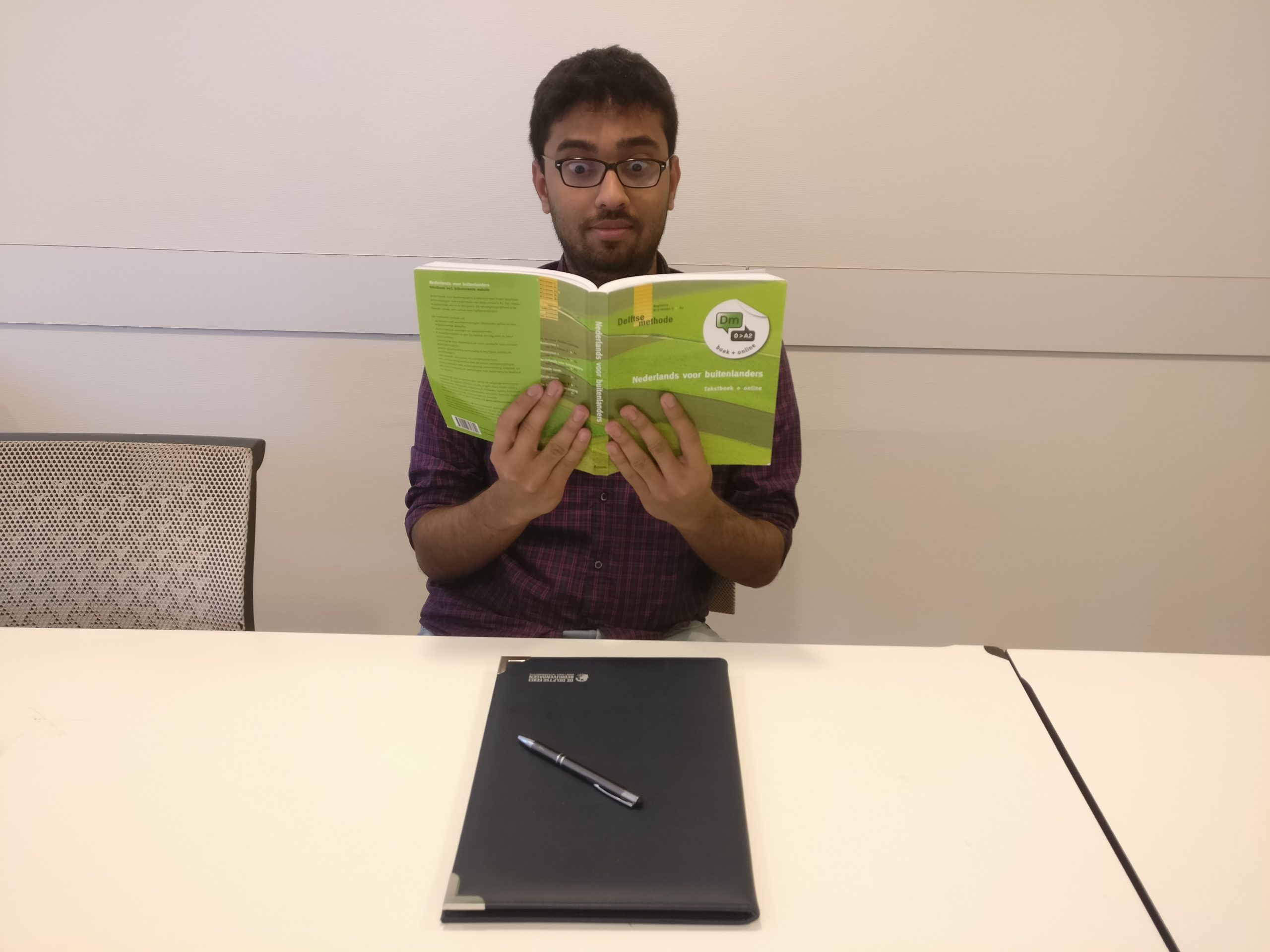Master’s student Vishal Onkhar has some tips for international students trying to learn Dutch using the ‘Delftse methode’. “Focus a little on improving your English.”
Vishal Onkhar: "The Dutch language is a fickle mistress." (Photo: Vishal Onkhar)
“Kapsalon”, my friend repeated, “Want to go get a Kapsalon? I hear they’re quite good around here.” I stared at him with a bewildered expression on my face. Here I was, absolutely ravenous for a meal after a long day, and he was suggesting a haircut! Needless to say, after clearing that up, we went for a pizza instead.
Having already studied a year of German, I had assumed the transition to Dutch would be fairly straightforward, considering that the two are closely allied to English within the Germanic language tree. Therefore, I approached it with a strategy to combine English and German and arrive at Dutch, an idea supported by geographical and historical factors.
As it so happened, I was not entirely off the mark with this conjecture, but I did discover many beautiful nuances in Dutch that could not be related to any other tongue, making them wonderfully unique. For instance, I always wondered whether the Dutch loved apples so much that they decided to name potatoes (aardappelen or ‘earth apples’) and oranges (sinaasappelen or ‘China apples’) in their honour. This is in stark contrast to English where the phrase ‘apples and oranges’ denotes two things that are too disparate to be compared.
‘Speak to Dutch people in Dutch’
As an international student, and over the course of two levels in the ‘Delftse Methode’, I have come to some realisations that may be of assistance to others who wish to pursue Dutch via the TU in the future.
- First things first, make no mistake, the classes involve a lot of homework which is not just limited to passing multiple tests each time but also require hours of practice to get comfortable with using the language. Thus, it is recommended to take the course when you have a relatively large amount of free time and you are prepared to work well beyond what the nominal three ECTS demands. (Then again, aren’t all the courses at TU Delft like that?) Rest assured, however, that every minute is worth it and it is a rewarding experience in more ways than one.
- Second, the trick to improving your Dutch is to focus a little on improving your English. The reason for this lies in the similarities between Dutch and Shakespearean English in terms of grammar and sentence structure. In essence, this technique entails literally translating a sentence in Dutch into old English and rearranging the order of the words to obtain its meaning in modern English. With a little bit of practice, you can do this in a split second and it will enable you to understand just about anything in Dutch. This method also works quite well when applied to learning German.
- Third, and I cannot stress enough how important this is: it is essential that you venture outdoors and speak to Dutch people in Dutch. It doesn’t matter if your speech is grammatically incorrect. More often than not, they will be pleasantly surprised that you made an effort to learn their language and this will endear you to them. They will usually offer you suggestions to improve your speaking skills and correct your mistakes, two pillars that will help you quickly build up your command of the language. Additionally, this will boost your ability to pronounce some of the more guttural sounds in Dutch. It’s also a great way to meet new people!
- To conclude, it must be said that the Dutch language is a fickle mistress, especially in the eyes of a foreigner. Sometimes she can be as easy-going as her English sister, but at a moment’s notice can transform into the hard taskmaster and stickler for the rules that is her German mother-in-law. However, she is always fascinating and enigmatic, so much so that you are constantly drawn back to learn more about her, and in the end, that is all that matters.
Vishal Onkhar
Vishal Onkhar is from Chennai, India and pursuing his master‘s in Vehicle Engineering at TU Delft. He is an avid player of chess and video games, but he also harbours a special interest for reading and writing fantasy fiction. He doesn’t drink coffee but good music and film has the same effect on him. Also read his Delta Lab article The parsimonious guide to expenses in Delft.
Delta Lab / Delta Lab offers you the opportunity to share anything you really care about with the entire University community. E-mail us at delta@tudelft.nl.



Comments are closed.